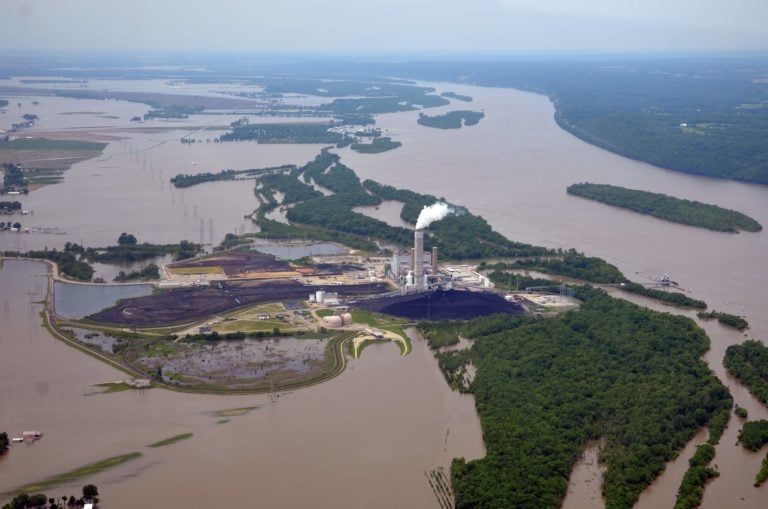Water Protection Groups File Notice to Sue Ameren over Toxic Coal Ash Pollution Violations
By: Waterkeeper Alliance

Waterkeeper Alliance, Missouri Confluence Waterkeeper, and Great Rivers Environmental Law Center today announced that they have served Ameren Corporation, Missouri’s largest electric utility company, with a notice of intent to sue the company to stop significant and ongoing violations of the federal Clean Water Act due to continuing unpermitted discharges of toxic coal ash pollutants from the company’s Sioux Energy Center in St. Charles County outside of St. Louis.
Coal ash, a by-product of burning coal, contains multiple contaminants known to be associated with long-term human health and ecological risks, including mercury, boron, sulfate, cadmium, molybdenum, lead, and arsenic. The groups allege that Ameren is storing over 3 million tons of coal ash in a massive unlined disposal pit on the banks of the Mississippi River, one of its backwater chutes, and Poeling Lake, within the floodplain. According to Ameren’s own records for the Sioux Energy facility, the disposal pit is discharging toxic coal ash pollutants into the shallow groundwater beneath the site and, ultimately, into the adjacent surface waters, including the Mississippi River.
“There could not be a worse place to leave this waste forever and allow the pollution to be released into the Mississippi River for decades to come. Fortunately, we believe the Supreme Court’s decision in County of Maui v. Hawaii Wildlife Fund confirms that the Clean Water Act controls discharges through groundwater into protected surface waters like the Missouri and Mississippi Rivers,” said Bob Menees of Great Rivers Environmental Law Center. “Ameren cannot continue to discharge toxic coal ash pollution to these rivers in violation of the Clean Water Act and must take action to remove the waste and clean up the pollution at the site.”
The group’s decision to move forward with the notice comes after years of urging the utility to take voluntary action to address the human health and environmental hazards at Sioux Energy by cleaning up the leaking coal ash disposal pit and managing the waste outside the floodplain to prevent illegal pollution discharges. Ameren declined to do so—opting instead to permanently dispose of the toxic waste in the illegally discharging, unlined pit that sits in the floodplain between two of our nation’s greatest river systems—the Mississippi River and Missouri River.
“It is well known that unlined coal ash disposal pits release toxic pollutants into groundwater and connected waterways,” said Kelly Hunter Foster of Waterkeeper Alliance. “It is also well known that coal ash is toxic and can cause significant harm to plants, wildlife, and human health—including cancer, heart disease, and lasting brain damage in children. It is dangerous to dump coal ash in a pit and allow it to be discharged into our waters.”
The organizations say that Ameren attempted to justify its decision to leave coal ash buried in such dangerous conditions by providing severely inflated cost estimates for removing the waste that are significantly higher than costs for similar cleanups at other sites in the U.S. In the twelve months ending September 30, 2020, Ameren reported gross profits of $4.519 billion.